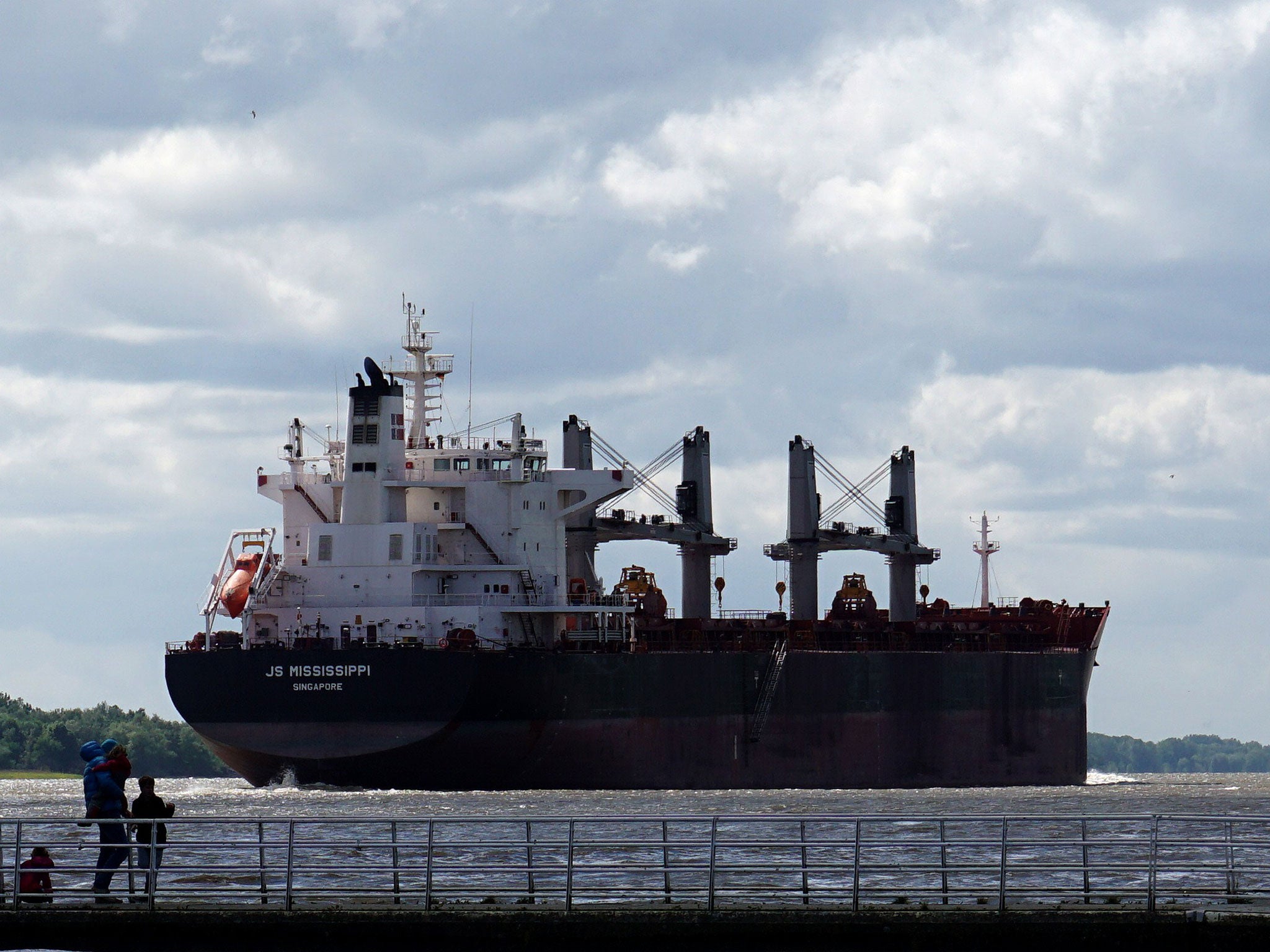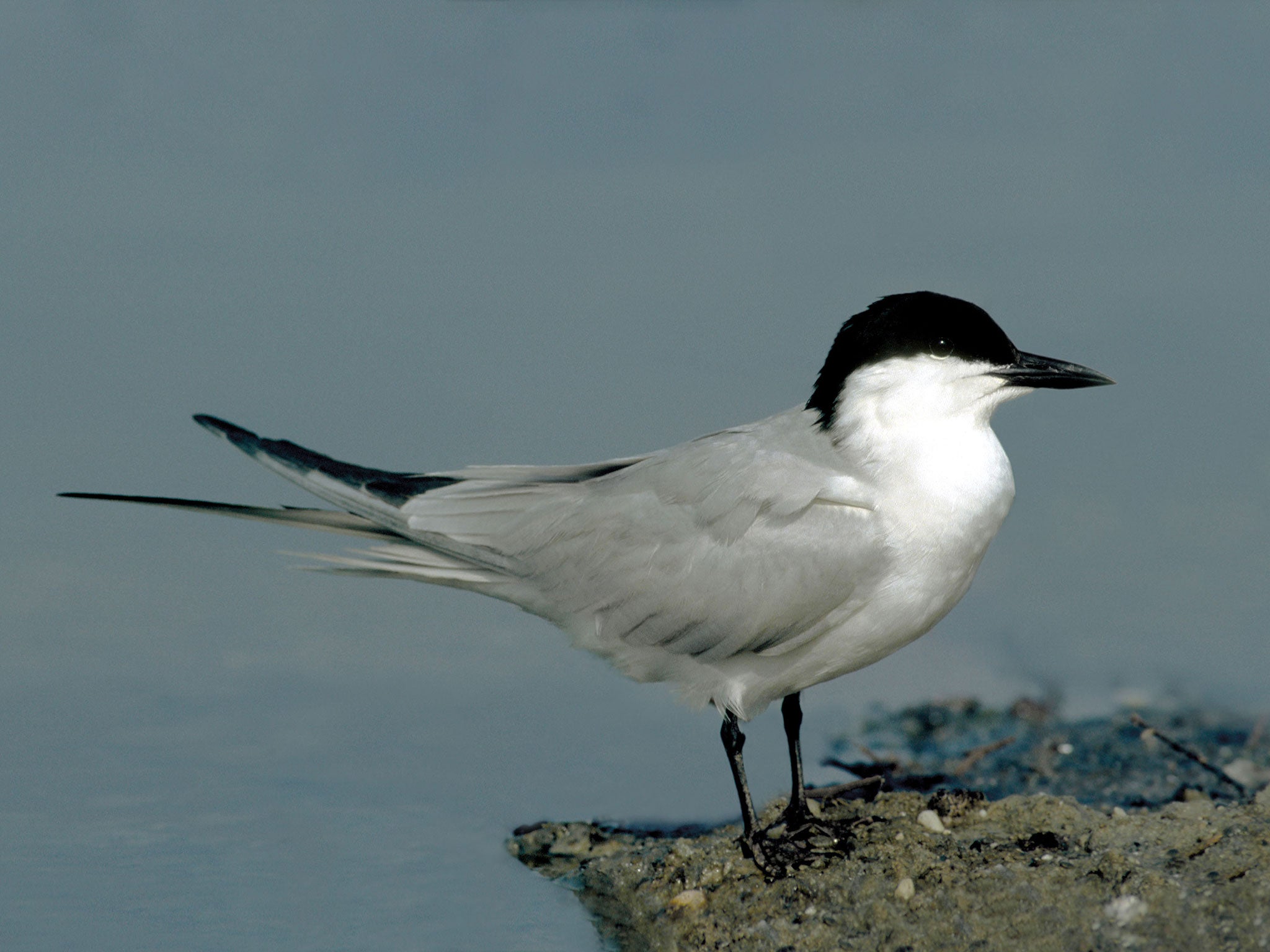Rare seabirds could defeat Hamburg's plan to attract megacarriers
New 19,000-container super-freighters are expected to dominate commercial shipping in coming decades

Your support helps us to tell the story
From reproductive rights to climate change to Big Tech, The Independent is on the ground when the story is developing. Whether it's investigating the financials of Elon Musk's pro-Trump PAC or producing our latest documentary, 'The A Word', which shines a light on the American women fighting for reproductive rights, we know how important it is to parse out the facts from the messaging.
At such a critical moment in US history, we need reporters on the ground. Your donation allows us to keep sending journalists to speak to both sides of the story.
The Independent is trusted by Americans across the entire political spectrum. And unlike many other quality news outlets, we choose not to lock Americans out of our reporting and analysis with paywalls. We believe quality journalism should be available to everyone, paid for by those who can afford it.
Your support makes all the difference.Just 40 miles downstream from the booming port of Hamburg, huge cargo ships pass grey-green mud flats and enter the Elbe on the flood tide, almost perceptibly groaning under the weight of up to 8,000 steel containers apiece.
The river is Germany’s second most commercially important after the Rhine. Now, if Chancellor Angel Merkel’s coalition and Hamburg’s city government get their way, its lower reaches will soon be navigable by juggernaut vessels twice the size of the current megacarriers, each laden with more than double the cargo.
These new 19,000-container super-freighters are expected to dominate commercial shipping in the coming decades, but if fully laden they are currently unable to reach Hamburg. The port city’s answer to the problem is an increasingly controversial plan to dredge and permanently deepen the river – for the ninth time in the past century – by more than 5ft to accommodate them.
Olaf Scholz, the city’s governing Social Democrat mayor, warns that otherwise container ships of the future will bypass Hamburg completely and opt instead for its deeper Dutch rival, Rotterdam. Hamburg’s commercial viability would be devastated. “The project’s importance for the whole of Germany should not be underestimated,” he insisted recently. Even his local Green party coalition partners are holding back from actively opposing the project.
The plan to deepen the Elbe is being examined by Germany’s main administrative court in Leipzig. But a seasonal visitor to the mudflats near Neufeld, a village by the mouth of the estuary, meanwhile threatens to stop the plan dead in the water.

From April to September, the marshes around Neufeld are alive to the sight and sound of 2,000 pairs of black-capped common terns which come to the area to breed. But among them are 34 pairs of much rarer gull-billed terns, discernible by their black, gull-like bills. They make up the only real European colony of the species, which is on the red list of most endangered birds.
Under the European Union’s strict nature protection rules, the Elbe can be deepened for increased maritime traffic only if the surrounding natural environment is not damaged. Ornithologists such as Markus Risch, who recently catalogued bird life for the port authority, is convinced that deepening the Elbe will eradicate the gull-billed tern colony. “They make up the last pairs in central Europe,” he said.
His views are echoed by Veit Hennig, a Hamburg University biologist. Sitting in a nature research vehicle overlooking the Elbe, he pulls out a paper chart of the estuary to show where a northern channel of the Elbe will be filled with the 36 million cubic feet of mud and rubble dredged from the river, turning it into a giant landfill and effectively destroying scores of side creeks where the birds feed. “If the project goes ahead then I fear the tern colony will no longer exist,” he said.
Now the World Wide Fund for Nature (WWF) and two German environment protection agencies have mounted a legal challenge to the plans. The Federal Shipping Authority, which drew up the Elbe deepening plan, said it could not comment on the challenge while the case was still being considered by a court. A ruling is expected later this year.
Anjes Tjarks, Hamburg’s Green parliamentary party leader, said Rotterdam already berthed three times Hamburg’s tonnage each year. “The importance of the Elbe deepening project is exaggerated,” he told The Independent.
In German, the gull-billed rern is the Lachseeschwalbe or “laughing tern” because of its raucous, mocking cry. Environmentalists hope it may yet have the last laugh on the plans to deepen the Elbe.
Join our commenting forum
Join thought-provoking conversations, follow other Independent readers and see their replies
Comments